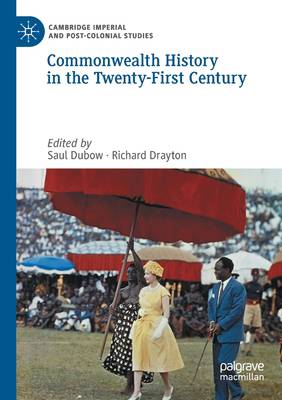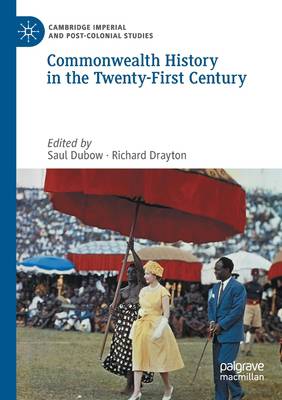
- Retrait gratuit dans votre magasin Club
- 7.000.000 titres dans notre catalogue
- Payer en toute sécurité
- Toujours un magasin près de chez vous
- Retrait gratuit dans votre magasin Club
- 7.000.0000 titres dans notre catalogue
- Payer en toute sécurité
- Toujours un magasin près de chez vous
Commonwealth History in the Twenty-First Century
Description
This edited collection draws together new historical writing on the Commonwealth. It features the work of younger scholars, as well as established academics, and highlights themes such as law and sovereignty, republicanism and the monarchy, French engagement with the Commonwealth, the anti-apartheid struggle, race and immigration, memory and commemoration, and banking. The volume focusses less on the Commonwealth as an institution than on the relevance and meaning of the Commonwealth to its member countries and peoples. By adopting oblique, de-centred, approaches to Commonwealth history, unusual or overlooked connections are brought to the fore while old problems are looked at from fresh vantage points - be this turning points like the relationship between 'old' and `new' Commonwealth members from 1949, or the distinctive roles of major figures like Jawaharlal Nehru or Jan Smuts. The volume thereby aims to refresh interest in Commonwealth history as a field of comparative international history.
Spécifications
Parties prenantes
- Editeur:
Contenu
- Nombre de pages :
- 345
- Langue:
- Anglais
- Collection :
Caractéristiques
- EAN:
- 9783030417901
- Date de parution :
- 06-07-21
- Format:
- Livre broché
- Format numérique:
- Trade paperback (VS)
- Dimensions :
- 148 mm x 210 mm
- Poids :
- 430 g

Les avis
Nous publions uniquement les avis qui respectent les conditions requises. Consultez nos conditions pour les avis.





